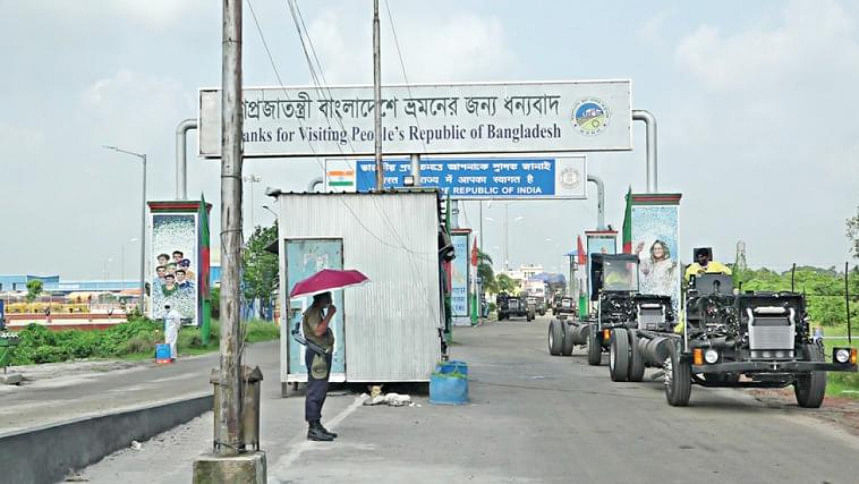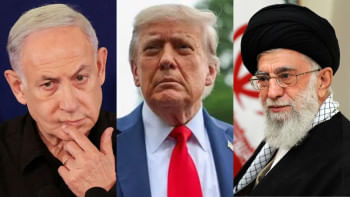Cepa could be a game-changer for Indo-Bangla trade, says Indian envoy

The planned comprehensive economic partnership agreement (Cepa) could be a game-changer for both India and Bangladesh in terms of trade, said Indian High Commissioner Pranay Verma today.
He said smooth connectivity is crucial to boosting trade and commerce between the two countries. And land routes, railways and even waterways between Bangladesh and India can be expanded more.
In the last decade, bilateral trade has increased remarkably and the envoy opined that a Cepa could be a game-changer for both countries in terms of trade and commerce.
"Stronger connectivity is the driving force for economic prosperity," he said.
Verma spoke at a seminar on "Improved Connectivity: Unlocking Economic Potential between India and Bangladesh" jointly organised by the High Commission of India and the Dhaka Chamber of Commerce and Industry (DCCI) at Le Meridien Hotel in the capital, according to a press release from the chamber.
He said infrastructure development of seven land customs stations is underway that will boost two-way trade. Currently, seven border haats are being operated and the number will be increased in the future, he said.
Bilateral trade between Bangladesh and India was $16 billion in the last financial year.
"But there are scopes to expand the bilateral trade to a minimum of $20 billion by addressing non-tariff barriers and connectivity-related challenges," said Md Sameer Sattar, president of the DCCI.
Referring to a World Bank report, he said seamless transport connectivity has the potential to increase national income by 17 per cent in Bangladesh and 8 per cent in India.
"Connectivity improvement between the northeastern region of India and Bangladesh is essential to supporting the regional market and improving our trade with India."
Mashiur Rahman, economic adviser to the prime minister, said in terms of export and import, Bangladesh may think of using local currencies for its bilateral trade.
He said the investment environment in Bangladesh is very friendly, so more Indian companies should invest in the country.
"In terms of railway connectivity, a few development projects such as the construction of the Bangabandhu railway bridge are underway and these will create an ample opportunity for bilateral trade."
He also called for reconsidering the issue of the anti-dumping duty imposed on the raw jute export from Bangladesh.
The adviser underscored the importance of seamless transhipment of Bangladeshi products through India and said an easy visa process was needed for smooth communication of businessmen of both countries.
According to a presentation made by the officials from the high commission, 40 per cent of trade between the two countries takes place through land ports. Of which, 70 per cent is happening via the Benapole-Petrapole land port.
In the last five years, the bilateral trade has doubled and Bangladesh's export to India has doubled in the last three years, said the officials, underscoring developing inland waterways and coastal shipping, air and railway connectivity, according to the press release.
The northeastern region of India is the potential for Bangladesh to do more business and India's access to the Mongla and Chattogram ports is beneficial for both countries, the presentation said, adding that after the completion of the India-Bangladesh pipeline, one million tonnes of diesel can be transported to Bangladesh annually.

 For all latest news, follow The Daily Star's Google News channel.
For all latest news, follow The Daily Star's Google News channel. 



Comments